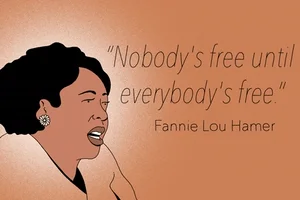LESSONS 3187 Wed 20 & 3188 Thu 21 Nov 2019
KUSHINARA NIBBANA BHUMI PAGODA -PATH TO ATTAIN ETERNAL BLISS AS FINAL GOAL
Analytic
Insight Net - FREE Online Tipiṭaka Law Research & Practice
University in
111 CLASSICAL LANGUAGES in BUDDHA’S own Words
through
in 29) Classical English,Roman,98) Classical Tajik-тоҷикӣ классикӣ,
https://tenor.com/view/magikarp-gif-9113494
The Buddha explained this with a simile.
“As a fish from watery home is drawn and cast upon the land, even so
flounders this mind while Mara’s realm abandoning”Mind which had
indulged in sensual pleasures is like a fish in water, when taken out of
the temptations it will start to flutter.


“Mind agitated, wavering, hard to guard and hard to check, one of wisdom renders straight as arrow maker with a shaft.”

https://www.youtube.com/watch?v=1xKg05eOhuU
Simple, Primitive Arrow Straightener
“Mind agitated, wavering, hard to guard and hard to check, one of wisdom renders straight as arrow maker with a shaft.”
WayPoint Survival
5.4K subscribers
Finding proper arrow blanks can be difficult in the woods. Knowing how
to make the right tools and then how to straighten the arrows is a great
skill to own. I hope you enjoy the video of how to make a simple,
primitive arrow straightener! For more information on classes and
scheduling go to: https://waypointsurvival.com/
Category
People & Blogs
“Having known this urn-like (clay or ceramic pot like - breakable)
body, made firm this mind as fortress town, with wisdom-weapon one
fights temptations and death (Mara) while guarding booty,
unattached”Well tamed mind brings happiness to many. When a person does
activities (verbal, mental and physical) with a pure mind, outcomes will
be beneficial or happy.
https://giphy.com/gifs/disney-winnie-the-pooh-many-adventures-of-84ZzhsJZWlE3e

https://www.youtube.com/watch?v=GyBhNtAYjdU
“Having known this urn-like (clay or ceramic pot like - breakable)
body, made firm this mind as fortress town, with wisdom-weapon one
fights temptations and death (Mara) while guarding booty,
unattached”Well tamed mind brings happiness to many. When a person does
activities (verbal, mental and physical) with a pure mind, outcomes will
be beneficial or happy.
Tamed Mind Brings Happiness - Quality of Awakened | Lord Buddha’s Dhammapada, Chapter-3 | Mind
Swami Vivekananda - The Inspirational Leader
248K subscribers
Tamed Mind Brings Happiness - Quality of Awakened | Lord Buddha’s Dhammapada, Chapter-3 | Mind
#keerthinavin #SwamiVivekanandaTheInspirationalLeader #SwamiVivekananda #NKKP
For more videos and playlists -
Swami Vivekananda
https://www.youtube.com/playlist?list…
Meditation for Beginners
https://www.youtube.com/playlist?list…
Sri Ramakrishna Paramahamsa
https://www.youtube.com/playlist?list…
Brahmacharya
https://www.youtube.com/playlist?list…
Holy Mother Sri Sarada Devi
https://www.youtube.com/playlist?list…
Temples of India
https://www.youtube.com/playlist?list…
All Playlists
https://www.youtube.com/user/keerthin…
Hindi Videos
https://www.youtube.com/playlist?list…
Brahmacharya Channel Videos -
https://www.youtube.com/playlist?list…
Ramakrishna Math Bhajans
https://www.youtube.com/playlist?list…
Swami Purushottamananda Bhajans
https://www.youtube.com/playlist?list…
No-Copyright Relaxation Music
https://www.youtube.com/playlist?list…
Sri Ramanujacharya
https://www.youtube.com/playlist?list…
Adi Sankaracharya
https://www.youtube.com/playlist?list…
Bhakti Yoga
https://www.youtube.com/playlist?list…
Raja Yoga
https://www.youtube.com/playlist?list…
Karma Yoga
https://www.youtube.com/playlist?list…
Jnana Yoga
https://www.youtube.com/playlist?list…
Ramana Maharshi
https://www.youtube.com/playlist?list…
Personality Development
https://www.youtube.com/playlist?list…
Swami Brahmananda - Ramakrishna Mission
https://www.youtube.com/playlist?list…
Swami Trigunatitananda - Ramakrishna Mission
https://www.youtube.com/playlist?list…
Direct Disciples of Sri Ramakrishna Paramahamsa
https://www.youtube.com/playlist?list…
Lord Buddha
https://www.youtube.com/playlist?list…
Inspiration for Students
https://www.youtube.com/playlist?list…
APJ Abdul Kalam
https://www.youtube.com/playlist?list…
63 Nayanars
https://www.youtube.com/watch?v=3LzpG…
Swami Sivananda - Divine Life Society
https://www.youtube.com/watch?v=2UTcj…
Meditation Prayers, Bhajans & Devotional Songs
https://www.youtube.com/playlist?list…
Hinduism
https://www.youtube.com/playlist?list…
Lord Dattatreya (Guru Datta)
https://www.youtube.com/playlist?list…
Chandrasekharendra Saraswati
https://www.youtube.com/playlist?list…
Zero Pollution Planet
https://www.youtube.com/playlist?list…
Stop Animal Slaughter and Animal Cruelty
https://www.youtube.com/watch?v=x2y3v…
Decoding SELF
https://www.youtube.com/playlist?list…
How To Stuff??
https://www.youtube.com/playlist?list…
Vedanta & Teachings
https://www.youtube.com/playlist?list…
Marriage & Celibacy - Understanding Real Essence of Brahmacharya
https://www.youtube.com/playlist?list…
Paramahamsa Yogananda
https://www.youtube.com/playlist?list…
Bhagavad Gītā
https://www.youtube.com/playlist?list…
Telugu Spiritual Devotional Videos
https://www.youtube.com/playlist?list…
Advaita, Dvaita, Vishishtadvaita
https://www.youtube.com/playlist?list…
Vivekachudamani Topics of Adi Sankaracharya
https://www.youtube.com/playlist?list…
Lord Balaji & Tirumal Tirupati
https://www.youtube.com/playlist?list…
Srisailam Temples
https://www.youtube.com/playlist?list…
Lord Jesus (Christianity)
https://www.youtube.com/playlist?list…
Music - Rising Spirits By Jan Man www.ourmusicbox.com
Americana - Aspiring by Kevin MacLeod is licensed under a Creative Commons Attribution license (https://creativecommons.org/licenses/…)
Source: http://incompetech.com/music/royalty-…
Artist: http://incompetech.com/
Category
Nonprofits & Activism
Buddha presented the simile of a shadow following a person.
https://giphy.com/gifs/baby-scared-shadow-l2SpXppPAVltwn5v2

A shadow following a person does not bother her/him. Sometimes it may
become a companion to eliminate loneliness.“Mind precedes all knowables,
mind’s their chief, mind-made are they,If with a clear and a confident
mind one should either speak or act, happiness follows caused by that,
as one’s shadow ne’er departing”
https://www.youtube.com/watch?v=n01xlqcmAuc
Dhammapada Verse 2 & The Buddha’s Story
Phra Dhammo
3 subscribers
Dhammapada Verse 2
For more Dhamma from Phra Dhammo please visit http://www.facebook.com/Phra.Dhammo
Happiness follows the doer of good, as the shadow that leaves not the person.
Manopubbangama dhamma
manosettha manomaya
manasa ce pasannena
bhasati va karoti va
tato nam sukha1 manveti
chayava anapayini.
Mind precedes all knowables,
mind’s their chief, mind-made are they.
if with a clear, a confident mind
one should either speak or act,
happiness follows caused by that,
as one’s shadow never departing.
Happiness Follows The Doer Of Good
The Story of Matthakundali (Verse 2)
While residing at the Jetavana Monastery in Sàvatthi, the
Buddha spoke this verse, with reference to Maññakuõdali, a
young Bràhmin.
Matthakundali was a young Bràhmin, whose father,
Adinnapubbaka, was very miserly and never gave anything
in charity. Even the gold ornaments for his only son were
made by himself to save payment for workmanship. When
his son fell ill, no physician was consulted, until it was too
late. When he realized that his son was dying, he had the
youth carried outside on to the verandah, so that people
coming to his house would not see his possessions.
On that morning, the Buddha arising early from his
deep meditation of compassion saw, in his Net of Knowledge,
Matthakundali lying on the verandah. So when entering Sàvat-
thi for alms-food with his disciples, the Buddha stood near
the door of the Bràhmin Adinnapubbaka. The Buddha sent
forth a ray of light to attract the attention of the youth, who
was facing the interior of the house. The youth saw the
Buddha; and as he was very weak he could only profess his
faith mentally. But that was enough. When he passed away
with his heart in devotion to the Buddha he was reborn in the
Tàvatiüsa celestial world.
From his celestial abode the young Matthakundali, seeing his
father mourning over him at the cemetery, appeared
to the old man in the likeness of his old self. He told his father
about his rebirth in the Tàvatiüsa world and also urged him
to approach and invite the Buddha to a meal. At the house of
Adinnapubbaka the question of whether one could or could
not be reborn in a celestial world simply by mentally professing
profound faith in the Buddha, without giving in charity
or observing the moral precepts, was brought up. So the
Buddha invited Matthakundali to appear in person; Matthakundali
then appeared in his celestial ornaments and told them
about his rebirth in the Tàvatiüsa realm. Only then, the listeners
became convinced that the son of the Bràhmin Adinnapubbaka, by simply
devoting his mind to the Buddha, had
attained much glory.
Category
Film & Animation
All the Buddhas’ advice their
followers to do wholesome activities. Hence, there are many places that
such actions are encouraged. In one place Buddha stated:
“Just as
out of many flowers many garlands are created, similarly by a person
born into this world many virtuous deeds should be performed”(the
quotations are all from Dhammapada - a collection of short verses in
Tipitaka)
https://giphy.com/gifs/art-fun-artist-3ohzdWsUVRcZC2L7Ms

https://www.youtube.com/watch?v=0dTWnFxSUHM
Dhammapada Verse 53: Making Garlands Of Flowers
All the Buddhas’ advice their followers to do wholesome activities.
Hence, there are many places that such actions are encouraged. In one
place Buddha stated:
“Just as out of many flowers many garlands are
created, similarly by a person born into this world many virtuous deeds
should be performed”(the quotations are all from Dhammapada - a
collection of short verses in Tipitaka)
84
3
Share
Save
Yuttadhammo Bhikkhu
73.7K subscribers
53. yathāpi puppharāsimhā, kayirā mālāguṇe bahū.
evaṃ jātena maccena, kattabbaṃ kusalaṃ bahuṃ.
Video 39 in a series on the Dhammapada, a set of 423 verse teachings
given by the Buddha, including explanation of the Pali verse, a synopsis
of the background story and application of the teaching to our
practice.
For more information the dhammapada: http://www.buddhanet.net/e-learning/b…
Monastery Website:
http://canada.sirimangalo.org/
- - - - - - - - - - - - - - - - - - - - - - - - - -
Ask questions at our weekly live video session:
or via our Question and Answer Forum:
- - - - - - - - - - - - - - - - - - - - - - - - - -
Subscribe for updates here:
http://www.youtube.com/subscription_c…
and don’t forget to click the ‘like’ button to help promote these
videos! Thanks for your questions, comments and support for what I do.
May all beings be happy.
- - - - - - - - - - - - - - - - - - - - - - - - - -
Community Website:
Facebook:
http://www.facebook.com/yuttadhammo
Twitter:
http://www.twitter.com/yuttadhammo
Google:
http://www.google.com/profiles/yuttad…
Weblog:
http://yuttadhammo.sirimangalo.org/
Schedule:
http://yuttadhammo.sirimangalo.org/sc…
Audio Talks:
http://yuttadhammo.sirimangalo.org/audio
Book on How To Meditate:
http://yuttadhammo.sirimangalo.org/ar…
Sirimangalo International (Our non-profit organization):
Supporting This Work:
http://www.sirimangalo.org/support
Category
Education
License
Creative Commons Attribution license (reuse allowed)
Source videos
View attributions
“Nothing can give real happiness as [can] Nibbana.”
So said the Buddha.
https://giphy.com/gifs/cat-kitty-motivational-xT9DPIBYf0pAviBLzO

https://www.youtube.com/watch?v=RGajhQNAGxo
“Nothing can give real happiness as [can] Nibbana.”
So said the Buddha.
How To Live Happy Life | Buddha’s Guide To Happy Life | Animated Version
Yugro
4.36K subscribers
Do you know the way to happy life ?
Buddha’s Guide To Happy Life:
Four desires of a Human Being:
Don’t want to be poor.
Wants to be rich.
Wants to be independent.
Respect in society.
Respect among his peers.
Being healthy.
Know the meaning of life.
Be the master:
Learn as many skills as you can.
Swimming, Photography, Calligraphy, Entrepreneurship, Job or whatever you do. Learn it well. Do it well.
“Mastery is your Dhamma”
Money Rules.
Use right methods to earn money.
5 prohibited business:
Business of arms and ammunition.
Selling of birds or animals or humans.
Business of meat.
Business of liquor and drugs.
Business of poison.
Ways of spending money:
Spend for the happiness and health of
Yourself
Family
Friends
Employees
Safeguard your money from:
Water
Fire
Thief
overnment
Other untoward calamity.
Donate wisely.
Be Debt free.
Don’t be stingy.
4. Spiritual Life
Believe in the teachings of wise ones.
Follow five precepts:
Don’t lie. Don’t use bad words.
Refrain from wrong conduct in sexual pleasures.
Don’t kill living creatures.
Don’t steal.
Refrain from using intoxicants.
Donate for the happiness of others.
Meditate. Know the meaning of life.
Always be in the company of good people.
Read good books
Listen to right people at appropriate times.
Give respect to wise ones.
Be peaceful, pure and fearless during these 8 phases of life:
Profit-Loss.
Success-Failure.
Praise-Blame.
Joy-Sorrow.
Be Polite. Be Satisfied. Be Grateful.
Buddha said:
Don’t blindly believe what I say. Don’t believe me because others
convince you of my words. Don’t believe anything you see, read, or hear
from others, whether of authority, religious teachers or texts. Don’t
rely on logic alone, nor speculation. Don’t infer or be deceived by
appearances. Do not give up your authority and follow blindly the will
of others. This way will lead to only delusion. Find out for yourself
what is truth, what is real.
!! Be Happy !!
Category
Film & Animation

“All things, O Bhikkus, are on fire. And what, O Priests, are all these things which are on fire?
“The eye, O Bhikkus, is on fire; forms are on fire; eye-consciousness
is on fire; impressions received by the eye are on fire; and whatever
sensation, pleasant, unpleasant, or indifferent, originates in
dependence on impression received by he type, that also is on fire.”
“And with what are these on fire?”
“With the. fire of passion, say I, with the fire of hatred, with the
fire of infatuation; with birth, old age, death, sorrow, lamentation,
misery, grief and despair are they on fire.”
“The ear is on
fire; sounds are on fire; the nose is on fire; odours are on fire; the
tongue is on fire; tastes are on fire; the body is on fire; ideas are
on fire; and whatever sensation, pleasant, unpleasant, or indifferent,
originates in dependence on impression received by the mind, that also
is on fire.
“And with what are these on fire?”
“With the
fire of passion, say I; with the fire of hatred; with the fire of
infatuation; with birth, old age, death, sorrow, lamentation, misery,
grief, and despair are they on fire.”
“Perceiving this, O
Bhikkus, the learned and noble [person] conceives an aversion. And in
conceiving this aversion, he becomes divested of passion, and by the
absence of passion he becomes free, and when he is free he becomes aware
that he is free.”
“Excited by greed (lobha), brothers, furious
with anger (dosa), blinded by delusion (moha), with mind overwhelmed,
with mind enslaved, men reflect upon their own misfortune, men reflect
upon the misfortune of others, men experience mental suffering and
anguish.30. “If, however, greed, anger and delusion are done away
[with], men reflect neither upon their own misfortune nor on mental
suffering and anguish.
“Thus, brothers, is Nibbana visible in
this life and not merely in the future–inviting, attractive, accessible
to the wise disciple.”
“Nibbana means release from passion,” replied the Lord.
“Rooted in Nibbana, Radha, the righteous life is lived. Nibbana is its goal. Nibbana is its end.”
“The Lord, addressing the brethren, said, ‘Almsmen, be ye partakers
not of the world’s goods but of my doctrine; in my compassion for you
all I am anxious to ensure this.’
“This is peace, this is
exquisite — the resolution of all fabrications, the relinquishment of
all acquisitions, the ending of craving; dispassion; cessation;
Nibbana.”
— AN 3.32
https://www.youtube.com/watch?v=-_rUPF86vBM
The Cessation of Suffering : The cessation of Suffering is Nibbana – liberation.
Living Buddhism
6 subscribers
The Cessation of Suffering : The cessation of Suffering is Nibbana – liberation.
To eliminate ‘Dukka’ or suffering completely, one has to eliminate the main root of Dukkha.
It is craving or thirst and therefore the third Noble Truth is also
known as ‘ Thanhakkayo Nirodha’ extinction of the craving, thirst or
desire. It means complete cessation of ‘thanha’ or craving.
Nibbana or Nirodha is absolute freedom from craving, freedom from evil, freedom from hatred and ignorance.
As long as there is this ‘thirst’ ‘to be’ and ‘to become’ the cycle of
continuity goes on. It can be stopped only when its driving force this
craving is cut off through wisdom.
Wisdom is seeing the real
state of affairs. We cannot see the reality as it is covered and
concealed by our own mind. When the mind is obsessed with defilements
like craving and hatred, reality is hidden.
So to see things as truly as they are pure mind should be uncovered.
The extinction of craving, the extinction of hatred, the extinction of
illusion and ignorance will pave the way to see things clearly because
only then the mind is free from defilements which cover the mind.
‘Nirodha’ or ‘Nibbana’ as the third noble truth is cessation of Dhukka
or suffering, and this can be achieved by cleansing the mind from
defilements, craving and hatred.
This is the wisdom which will be inherited by a pure mind.
Watch the other video’s in Living Buddhism channel.
Part 1 : https://youtu.be/ShzNueVOnkA
Part 11 : https://youtu.be/PIPz-4GWP1E
Part 111 : https://youtu.be/t-xjimv-SKg
Part IV : https://youtu.be/aNT54fjsw08
feel free to get my latest Buddhist Doctrine in below link. All you
need is to sign up with the amazon audiable. Go through with the link
below and listen my audio book which is absolutely free.
Link For Audible 30 Day Free Trial Signup
https://amzn.to/2xphT1P
Category
Education
“All things, O Bhikkus, are on fire. And what, O Priests, are all these
things which are on fire? “The eye, O Bhikkus, is on fire; forms are on
fire; eye-consciousness is on fire; impressions received by the eye are
on fire; and whatever sensation, pleasant, unpleasant, or indifferent,
originates in dependence on impression received by he type, that also is
on fire.” “And with what are these on fire?” “With the. fire of
passion, say I, with the fire of hatred, with the fire of infatuation;
with birth, old age, death, sorrow, lamentation, misery, grief and
despair are they on fire.” “The ear is on fire; sounds are on fire; the
nose is on fire; odours are on fire; the tongue is on fire; tastes are
on fire; the body is on fire; ideas are on fire; and whatever sensation,
pleasant, unpleasant, or indifferent, originates in dependence on
impression received by the mind, that also is on fire. “And with what
are these on fire?” “With the fire of passion, say I; with the fire of
hatred; with the fire of infatuation; with birth, old age, death,
sorrow, lamentation, misery, grief, and despair are they on fire.”
“Perceiving this, O Bhikkus, the learned and noble [person] conceives an
aversion. And in conceiving this aversion, he becomes divested of
passion, and by the absence of passion he becomes free, and when he is
free he becomes aware that he is free.” “Excited by greed (lobha),
brothers, furious with anger (dosa), blinded by delusion (moha), with
mind overwhelmed, with mind enslaved, men reflect upon their own
misfortune, men reflect upon the misfortune of others, men experience
mental suffering and anguish.30. “If, however, greed, anger and delusion
are done away [with], men reflect neither upon their own misfortune nor
on mental suffering and anguish. “Thus, brothers, is Nibbana visible in
this life and not merely in the future–inviting, attractive, accessible
to the wise disciple.” “Nibbana means release from passion,” replied
the Lord. “Rooted in Nibbana, Radha, the righteous life is lived.
Nibbana is its goal. Nibbana is its end.” “The Lord, addressing the
brethren, said, ‘Almsmen, be ye partakers not of the world’s goods but
of my doctrine; in my compassion for you all I am anxious to ensure
this.’ “This is peace, this is exquisite — the resolution of all
fabrications, the relinquishment of all acquisitions, the ending of
craving; dispassion; cessation; Nibbana.”
— AN 3.32
There’s no fire like passion, no loss
like anger, no pain like the aggregates, no ease other than peace.
Hunger: the foremost illness. Fabrications: the foremost pain. For one
knowing this truth as it actually is, Unbinding is the foremost ease.
Freedom from illness: the foremost good fortune. Contentment: the
foremost wealth. Trust: the foremost kinship. Unbinding: the foremost
ease.
— Dhp 202-205Verse 202. Happiness Tranquilizes

https://www.youtube.com/watch?v=YrP5y4a7_yY
No Fire Like Passion
There’s no fire like passion, no loss like anger, no pain like the
aggregates, no ease other than peace. Hunger: the foremost illness.
Fabrications: the foremost pain. For one knowing this truth as it
actually is, Unbinding is the foremost ease. Freedom from illness: the
foremost good fortune. Contentment: the foremost wealth. Trust: the
foremost kinship. Unbinding: the foremost ease.
— Dhp 202-205Verse 202. Happiness Tranquilizes
Various Artists - Topic
52.7K subscribers
Provided to YouTube by Zimbalam
No Fire Like Passion · Ron van der Wiel
Trip to Trance
℗ Ron van der Wiel
Released on: 2012-04-13
Music Publisher: D.R
Author: Ron Van Der Wiel
Composer: Ron Van Der Wiel
Auto-generated by YouTube.
Category
Music
There’s no fire like lust, no evil like aversion, no dukkha like the aggregates, no higher bliss than Peace.
Explanation: There is no fire like passion. There is no crime like
anger. There is no pain like the personalized aggregate of phenomena.
There is no higher happiness than the supreme peace.
Verse 203. Worst Disease And Greatest Happiness
There’s no fire like lust, no evil like aversion, no dukkha like the aggregates, no higher bliss than Peace.
Explanation: There is no fire like passion. There is no crime like
anger. There is no pain like the personalized aggregate of phenomena.
There is no higher happiness than the supreme peace.
https://giphy.com/gifs/gq-kim-kardashian-see-no-evil-hear-xT0GqKxkO0YPjbz0Jy

https://www.youtube.com/watch?v=R7lgtCtAaJQ
There’s no fire like lust, no evil like aversion, no dukkha like the aggregates, no higher bliss than Peace.
Stilling Desire and Lust stops the Yearning!
Dahamma Dakshina
105 subscribers
The Blessed Buddha once said:
Friends, you should abandon all desire and any lust for whatever there is
impermanent, vanishing, and neither me, nor mine, nor owned by any self!
And what is impermanent, suffering & neither me, nor mine, nor any self?
The eyes and all forms are impermanent, suffering, and all impersonal…
The ears and all sounds are transient, affliction, and without any self…
The nose and all smells are fleeting, miserable, and not belonging to any..
The tongue & all flavours are temporary, addictive, and always ownerless.
The body and all touches are passing, obsessive, remote, alien &, non-self!
The mind and all thoughts are momentary, imaginary, and without a core…
Friends, you should eliminate all desire and any lust for whatever there is
impermanent, suffering, and impersonal, whether these appearances are
past, present or future, internal or external, high or low, fine or gross,
far or near… That will indeed ease your well-fare for a long, long time…
Why so? Because - Craving in itself! - is the very cause of all Suffering …
This is the 2nd Noble Truth, unheard of before, the Buddha discovered it!
Category
Entertainment
Created using
YouTube Video Editor
Source videos
View attributions
Music in this video
Learn more
Listen ad-free with YouTube Premium
Song
The Language Of Sound
Artist
Enigma
Writers
Michael Cretu
Licensed to YouTube by
UMG (on behalf of Island Records); CMRRA, LatinAutor, UNIAO BRASILEIRA
DE EDITORAS DE MUSICA - UBEM, ASCAP, Sony ATV Publishing, LatinAutor -
SonyATV, SODRAC, and 7 Music Rights Societies
Verse 203. Worst Disease And Greatest Happiness
Hunger is the greatest ill, the greatest dukkha - conditionedness, knowing this reality at it is: Nibbana bliss supreme.
Explanation: The most severe disease is hunger. The worst of pain is in
component things. If this is realistically appreciated, Nibbana is the
highest bliss.
Verse 204. Four Supreme Acquisitions

https://www.youtube.com/watch?v=abSk0MRn9t4
Anattā and Nibbāna
Hunger is the greatest ill, the greatest dukkha - conditionedness,
knowing this reality at it is: Nibbana bliss supreme. Explanation: The
most severe disease is hunger. The worst of pain is in component things.
If this is realistically appreciated, Nibbana is the highest bliss.
Verse 204. Four Supreme Acquisitions
Tai Tran
803 subscribers
Buddhist Publication Society Kandy • Sri Lanka
The Wheel Publication No. 11
First published: 1959
Reprinted: 1971, 1986
A slightly differing German version of this essay appeared in 1951 in the magazine Die Einsicht.
The English version was first published in the quarterly The Light of the Dhamma, Vol. IV, No. 3 (Rangoon 1957)
under the title “Nibbāna in the Light of the Middle Doctrine.”
BPS Online Edition © (2008)
Digital Transcription Source: BPS Transcription Project
For free distribution. This work may be republished, reformatted, reprinted and redistributed in any medium. However,
any such republication and redistribution is to be made available to the public on a free and unrestricted basis
and translations and other derivative works are to be clearly marked as such.
Anattā and Nibbāna
Egolessness and Deliverance
The Buddhist Publication Society
The BPS is an approved charity dedicated to making known the Teaching of the Buddha, which has a vital message for all people.
Founded in 1958, the BPS has published a wide variety of books and booklets covering a great range of topics.
Its publications include accurate annotated translations of the Buddha’s discourses, standard reference works,
as well as original contemporary expositions of Buddhist thought and practice.
These works present Buddhism as it truly is— a dynamic force which has influenced receptive minds
for the past 2500 years and is still as relevant today as it was when it first arose.
For more information about the BPS and our publications, please visit our website, or contact:
The Administrative Secretary Buddhist Publication Society P.O. Box 61
54 Sangharaja Mawatha Kandy, Sri Lanka E-mail: bps@bps.lk
Web site: http://www.bps.lk Tel: 0094 81 223 7283 Fax: 0094 81 222 3679
Notes:
1 The extracts from both works have mainly been taken, with a few
alterations, from Bhikkhu Ñāṇamoli’s translation (see Note on Sources).
Explanatory additions by this writer are in brackets, those by Bhikkhu Ñāṇamoli in parentheses.
2 Comy.: This is to show that, for Arahants, Nibbāna is established by their own experience.
3 Comy.: For others it is established by inference based on the words of the Master.
4 The paragraphs beginning with * are translated by the author of this essay; those without,
by Bhikkhu Ñāṇamoli (taken from the notes to his translation of the Visuddhimagga).
5 These are some of the altogether 33 designations of Nibbāna in SN 43:12-44.
6 This refers to Abhidhammic classifications in which Nibbāna is included, occurring, for instance, in the Dhammasaṅgaṇī.
7 The theosophical variant, is, e.g., represented by neo-Buddhist groups in Britain and elsewhere
which otherwise have done good work in introducing Westerners to Buddhist or to their conception of it.
The Vedantic influence is conspicuous, e.g., in the utterances of well-meaning Indians,
among them men of eminence, maintaining the basic identiey or
similarity, of the Vedantic and Buddhist position concerning Ātman.
This is, by the way, quite in contrast to opinion on that subject, expressed by the great classical exponents of Vedanta.
See Vedanta and Buddhismby H. v. Glasenapp (Wheel Publication No. 5).
Mahayanistic influence may be noticeable in some representatives of the former two variants.
But also in the Mahāyāna literature iteslef, the positive-metaphysical extreme is met with in varying degrees.
Ranging from the Madhyamika scriptures where it is comparatively negligible,
up to the Yogāvacara school where Asaṅga uses even the termsmahātmaandparamātmain an approving sense
(seeMahāyāna-sūtrālaṅkāra-śāstra and Asaṅga’s own commentary.)
8 These are the twenty kinds of individuality-belief (sakkāya-diṭṭhi).
9 See The Discourse on the Snake Simile, tr. by Nyanaponika Thera (Wheel No. 47/48).
10 I.e., outside the aggregates taken singly.
11 I.e., outside the aggregates as a whole.
12 Pali: attanā’va attānaṃ sañjānāmi.This refers to Vedantic conceptions.
Quite similar formulations are found already in the Saṃhitās, the pre-Buddhist Upanishads, and later in the Bhagavadgītā.
Category
People & Blogs
Health’s the greatest gain, contentment, best of wealth, trusting’s best of kin, Nibbana bliss supreme.
Explanation: Of acquisitions, good health is the foremost. Of wealth,
the greatest is peace of mind. Of kinsmen, the trustworthy are the best.
The highest bliss is Nibbana.
Verse 205. The Free Are The Purest

https://www.youtube.com/watch?v=LN__cwV_ZCE
Health’s the greatest gain, contentment, best of wealth, trusting’s
best of kin, Nibbana bliss supreme. Explanation: Of acquisitions, good
health is the foremost. Of wealth, the greatest is peace of mind. Of
kinsmen, the trustworthy are the best. The highest bliss is Nibbana.
Verse 205. The Free Are The Purest
The 6 Healthiest Foods You Should Start Your Day With || Health Sutra - Best Health Tips
Health Sutra - Best Health Tips
57.9K subscribers
Watch : The 6 Healthiest Foods You Should Start Your Day With || Health Sutra - Best Health Tips
Visit our infotainment partner : http://Wirally.com
Subscribe For More Health Tips: https://goo.gl/Jqpbgt
Category
Howto & Style
Having drunk of solitude and tasted Peace Sublime, free from sorrow, evil-free, one drinks of Dhamma’s joy.
Explanation: He has savoured the taste of solitude. He has also
experienced the flavour of tranquillity arising from the absence of
blemishes. Enjoying the sweetness of the realistic awareness he is
unaffected by blemishes and is bereft of evil.
He has savoured the taste of solitude. He has also experienced the
flavour of tranquillity arising from the absence of blemishes. Enjoying
the sweetness of the realistic awareness he is unaffected by blemishes
and is bereft of evil.

https://www.youtube.com/watch?v=4CkCRnT6Fmw
Having drunk of solitude and tasted Peace Sublime, free from sorrow,
evil-free, one drinks of Dhamma’s joy. Explanation: He has savoured the
taste of solitude. He has also experienced the flavour of tranquillity
arising from the absence of blemishes. Enjoying the sweetness of the
realistic awareness he is unaffected by blemishes and is bereft of evil.
PHẠM HẠNH BHIKKHU ( TỲ KHƯU )
Theravada Buddhist Photography
1.52K subscribers
ĐỜI SỐNG BẬC PHẠM HẠNH – THE DAILY OF BHIKKHU !
Ðã nếm vị độc cư,
Ðược hưởng vị nhàn tịnh,
Không sợ hãi, không ác,
Nếm được vị pháp hỷ.
Bậc xuất gia là người từ bỏ nhà đi xuất gia trong Phật giáo trở thành
vị Sadi, vị Sadi ni, vị Sikkhamānā, vị Tỳ khưu, vị Tỳ khưu ni, đều là
những bậc có đời sống không nhà (anāgāriya) hằng ngày nuôi mạng bằng
cách đi khất thực, duy trì sinh mạng để hành phạm hạnh cao thượng, đồng
thời cho chúng sinh có cơ hội tốt để tạo phước thiện bố thí, gieo duyên
lành, giống tốt nơi phước điền chư Đại đức Tăng:
“Anuttaraṃ puññakkhettaṃ lokassa” .
(Chư Thánh Tăng, chư phàm Tăng, bậc Thanh Văn đệ tử của Đức Thế Tôn là
phước điền cao thượng của chúng sinh không đâu sánh được).
Theo
truyền thống của Phật giáo Nguyên Thủy Theravāda trong thời điểm này,
bậc xuất gia chỉ còn có bậc Sadi và bậc Tỳ khưu mà thôi, còn Sadi ni,
Sikkhāmānā và Tỳ khưu ni đã mất hẳn trong khoảng thời gian 500 năm sau
khi Đức Phật tịch diệt Niết Bàn (căn cứ theo tài liệu kết tập Tam Tạng
và Chú giải, Phụ chú giải lần thứ 6 tại động Kaba Aye, gần thủ đô Yangon
xứ Myanmar).
Bhikkhu ( Tỳ Khưu )có rất nhiều ý nghĩa:
- Bhikkhati sīlenā’ti Bhikkhu: Bậc có thói quen thường đi khất thực để nuôi mạng gọi là Bhikkhu.
- Saṃsāre bhayaṃ ikkhatī’ti Bhikkhu: Bậc thấy rõ sự tai họa trong vòng tử sinh luân hồi gọi là Bhikkhu.
- “Yo ca imaṃ paṭipattiṃ paṭipajjati, so Bhikkhu nāma hotī’ti paṭipattiyā Bhikkhubhāvadassanato pi “Bhikkhu”
(Hành giả nào thực hành Tứ niệm xứ này, hành giả ấy được gọi là Tỳ khưu. Tỳ khưu chính là hành giả thực hành Tứ niệm xứ).
Theo Tạng Luật, Bhikkhu: Tỳ khưu được thành tựu do chư Tỳ khưu Tăng hội
họp tại nơi sīmā tụng ñatticatuttha-kammavācāpāḷi: Tụng 1 lần ñatti
(tuyên ngôn) và tiếp theo tụng 3 lần kammavācā (thành sự ngôn), nâng đỡ
vị giới tử Sadi lên trở thành Bhikkhu (Tỳ khưu) đúng theo luật của Đức
Phật.
( Nền Tảng Phật Giáo - Hành Giới – Tỳ Khưu Hộ Pháp )
Như vậy , bậc xuất gia đã bước vào đời sống của Tăng đoàn, Tuân thủ
theo Giới học , gắng hành đạt được Phạm Hạnh của Bhikkhu ( tỳ kheo) . Để
là nơi nương tựa của chúng sanh.
Having drunk of solitude
and tasted Peace Sublime,
free from sorrow, evil-free,
one drinks of Dhamma’s joy.
For the first hour the Buddha would walk up and down meditating and
freeing himself from the discomfort of sitting all day. He then would
sleep for an hour. Thus we can see the Buddha was busy the whole day. In
fact he only slept one hour each day during this 45 years of teaching.
During the early hours of the day he saw the whole universe, blessed it
with his boundless love and brought happiness to millions.
The
Teaching of the Buddha is concerned with more than intellectual
knowledge for it needs to be experienced as truth in one’s own life. The
Buddha often called his Teaching the Dhamma-Vinaya and when he passed
away he left these as the guide for all of us who followed. As Venerable
Thiradhammo writes:
In simple terms we could say that while Dhamma
represented the principles of Truth, the Vinaya represented the most
efficacious lifestyle for the realization of that Truth. Or, the Vinaya
was that way of life which enshrined the principles of Truth in the
practicalities of living within the world.”
The term ‘bhikkhu’
is defined as ‘almsman,’ or ‘mendicant.’ He is one who depends on others
for his material needs. This relationship of ‘right livelihood’ incurs
responsibilities: the bhikkhu must receive and use offerings in the
right way, whereas the lay devotee should make material offerings in the
right way and receive Dhamma teachings in the right way. The lay person
gives material support, which the bhikkhu properly receives and uses in
his Dhamma-practice so he can eventually reciprocate with the ‘highest
of gifts’ — Dhamma.
Category
People & Blogs
The awakened with
awareness, constantly absorbed in jhana, persevering, firm in their
effort: they touch Unbinding, the unexcelled safety from bondage.
— Dhp 23
Verse 23. Freedom Is Difficult
They meditate persistently, constantly they firmly strive, the
steadfast to Nibbana reach, the Unexcelled Secure from bonds.
Explanation: Those wise individuals who steadfastly practice meditation,
reach a level of understanding that enables them to experience Nibbana.
Those wise individuals who unceasingly continue in their meditation,
firmly and steadfastly, experience Nibbana, which is the supreme release
from all bonds.

https://www.youtube.com/watch?v=qsMLDb7FIJ4
Dhammapada Verses 21, 22, and 23: The Mindful Never Die
The awakened with awareness, constantly absorbed in jhana, persevering,
firm in their effort: they touch Unbinding, the unexcelled safety from
bondage.
— Dhp 23
Verse 23. Freedom Is Difficult They meditate
persistently, constantly they firmly strive, the steadfast to Nibbana
reach, the Unexcelled Secure from bonds. Explanation: Those wise
individuals who steadfastly practice meditation,
reach a level of understanding that enables them to experience Nibbana.
Those wise individuals who unceasingly continue in their meditation,
firmly and steadfastly, experience Nibbana, which is the supreme release
from all bonds.
Yuttadhammo Bhikkhu
73.7K subscribers
21. appamādo amatapadaṁ, pamādo maccuno padaṁ.
appamattā na mīyanti, ye pamattā yathā matā.
22. evaṁ visesato ñatvā, appamādamhi paṇḍitā.
appamāde pamodanti, ariyānaṁ gocare ratā.
23. te jhāyino sātatikā, niccaṁ daḷhaparakkamā.
phusanti dhīrā nibbānaṁ, yogakkhemaṁ anuttaraṁ.
Video #15 in a series on the Dhammapada, a set of 423 verse teachings
given by the Buddha, including explanation of the Pali verse, a synopsis
of the background story and application of the teaching to our
practice.
For more information the dhammapada: http://www.buddhanet.net/e-learning/b…
“There is that dimension where there is neither
earth, nor water, nor fire, nor wind; neither dimension of the
infinitude of space, nor dimension of the infinitude of consciousness,
nor dimension of nothingness, nor
dimension of neither perception
nor non-perception; neither this world, nor the next world, nor sun, nor
moon. And there, I say, there is neither coming, nor going, nor stasis;
neither passing away nor arising:
without stance, without foundation, without support [mental object]. This, just this, is the end of stress.”
— Ud 8.1
https://giphy.com/gifs/face-clock-alarm-F0Y7kjfHRl3a0

https://www.youtube.com/watch…
“There is that dimension where there is neither earth, nor water, nor
fire, nor wind; neither dimension of the infinitude of space, nor
dimension of the infinitude of consciousness, nor dimension of
nothingness, nor
dimension of neither perception nor
non-perception; neither this world, nor the next world, nor sun, nor
moon. And there, I say, there is neither coming, nor going, nor stasis;
neither passing away nor arising:
without stance, without foundation, without support [mental object]. This, just this, is the end of stress.”
— Ud 8.1
“Instant Relief From Anxiety & Stress” Peaceful Meditation Music, Deep Relaxing & Healing Music
Meditation and Healing
760K subscribers
“Instant Relief From Anxiety & Stress” Peaceful Meditation Music,
Deep Relaxing & Healing Music by Meditation and Healing.
This is
1 hour peaceful piano relaxing and meditation music which helps you to
relief from all the stress and anxiety. This instrumental background
music helps you for better sleep, relax your mind body and helps you for
better sleep. You can also use this music for healing purpose as well.
Download our Albums Here:
ITUNES ► https://itunes.apple.com/ca/artist/pr…
Spotify ► https://open.spotify.com/artist/4Qapq…
CD BABY ► https://store.cdbaby.com/Artist/Prabi…
Please like, share and subscribe.
copyright © Meditation and Healing © Prabin Dangol All rights reserved
🙏 Please follow me on:
Spotify: https://open.spotify.com/artist/4Qapq…
Facebook: https://www.facebook.com/Meditation-a…
Website: http://www.meditationhealingmusic.com
🎶 Download My Music from the following sources:
iTunes: https://itunes.apple.com/ca/artist/pr…
Amazon: https://www.amazon.com/s/ref=ntt_srch…
CdBaby: https://store.cdbaby.com/Artist/Prabi…
👦 About Myself:
My name is Prabin Dangol, a music composer and a sound designer. I have
been composing music for almost 15 years on various genre. My moto is
simply to spread positive energy and thoughts all over the world. My
music generally helps to enhance positive energy and relax mind body.
If you love my work, I request you to connect with me by subscribing to
my Meditation & Healing or Transformation & Miracle Channel.
More about me: http://meditationhealingmusic.com/about/
© All Music are copyrighted to Meditation & Healing YouTube Channel by Prabin Dangol ( P.D)
Images Licenced from: DepositPhotos.
Footages Licenced from: Videoblocks/ Storyblocks.
Category
Music
“There is, monks, an unborn — unbecome — unmade — unfabricated. If
there were not that unborn — unbecome — unmade — unfabricated, there
would not be the case that emancipation from the born — become — made —
fabricated would be discerned. But precisely because there is an unborn —
unbecome — unmade — unfabricated, emancipation from the born — become —
made —fabricated is discerned.”
— Ud 8.3
https://www.youtube.com/watch?v=vBRW4fUKd6M&t=392s
“There is, monks, an unborn — unbecome — unmade — unfabricated. If
there were not that unborn — unbecome — unmade — unfabricated, there
would not be the case that emancipation from the born — become — made —
fabricated would be discerned. But precisely because there is an unborn —
unbecome — unmade — unfabricated, emancipation from the born — become —
made —fabricated is discerned.”
— Ud 8.3
https://giphy.com/gifs/loop-walk-xUPGcM9CazM9H5KrEA

Richard St. Clair: Dharma Chant, Part 1 of 3, The Path of the Sages
Richard St. Clair
51 subscribers
Part I
Performed by Commonwealth Chorale, David Carrier cond., May 21, 2016, West Roxbury, Massachusetts.
Part 1: The Path of the Sages
Excerpts from the Pali Canon
Homage to the World-Honoured One, the Worthy One, the Fully Enlightened One.
I go to the Buddha for refuge; I go to the Dharma for refuge; I go to the Sangha for refuge.
Such indeed is the Blessed One, Exalted, Omniscent, endowed with
knowledge and virtue, well gone, Knower of the worlds, an incomparable
charioteer for the training of persons, Teacher of gods and men,
Enlightened and Blessed.
Thus I have heard that on one occasion
the Blessed One was staying in Savatthi in Jeta’s Grove, Anathapindika’s
Monastery. Now at that time the Blessed One was instructing, urging,
rousing and encouraging the monks with Dhamma talk concerned with
unbinding. The monks receptive, attentive, focusing their entire
awareness lending ear, listened to the Dhamma. Then, on realizing the
significance of that, the Blessed One on that occasion exclaimed:
There is that sphere where there is neither earth nor water, nor fire
nor wind; neither sphere of the infinitude of space, nor sphere of the
infinitude of consciousness, nor sphere of nothingness, nor sphere of
neither perception nor nonperception, neither this world nor the next
world, nor sun nor moon. And there, I say, there is neither coming nor
going, nor stasis: neither passing a way nor arising, without stance,
without formation, without support. This, just this, is the end of
stress, of stress.
There is, monks, an unborn, unbecome,
unmade, unfabricated. If there were not that unborn, unbecome, unmade,
unfabricated, there would not be the case that the emancipation from the
born, become, made, fabricated would be discerned. But precisely
because there is an unborn, unbecome, unmade, unfabricated, emancipation
from the born, become, made, fabricated is discerned.
One who
is dependent has wavering; one who is independent has no wavering: there
being no wavering, there is calm. There being calm there is no desire.
There being no desire there is no coming or going. There being no coming
or going there is no passing away or arising. There being no passing
away or arising arising, there is neither a here nor a there nor a
between the two. This, just this, is the end of stress.
It is hard to see the unaffected, for the truth is not easily seen:
craving is pierced in one who knows; for one who sees, there is nothing.
Who seeks to promote his welfare, having glimpsed the state of
perfect peace, should be able, honest and upright, gentle in speech,
meek and not proud. Contented, he ought to be easy to support, not
overbusy and simple in living. Tranquil his senses, let him be prudent
and not brazen, nor fawning on families. Also he must refrain from any
action that gives the wise reason to reprove him.
May all be
well and secure. May all beings be happy! without exception, long,
huge, or middle-sized or short, minute or bulky, whether visible or
invisible, and those living far or near, the born and those seeking
birth: May all beings be happy! Let none deceive or decry his fellow
anywhere; let none wish others harm in resentment or hate. Just as with
her own life a mother shields from hurt her own son, her only child, let
all-embracing thoughts for all beings be yours. Cultivate an
all-embracing mind of love for all throughout the universe in all its
height, depth, and breadth, Love that is untroubled and beyond hatred or
enmity. So long as you are awake, pursue this awareness with your
might: it is deemed the Divine state here.
Those buddhas of the
ages past, those buddhas that are yet to come, those buddhas of the
present time, forever do I revere. No other refuge do I seek, the Buddha
is my refuge true: by the speaking of this truth may peaceful victory
be mine! I revere with my head the dust of His holy feet; if the Buddha I
have wronged, may the Buddha forgive me. Until life’s end, to the
Buddha I go for refuge.
-Video Upload powered by https://www.TunesToTube.com
Category
Music

There is that
sphere where there is neither earth nor water, nor fire nor wind;
neither sphere of the infinitude of space, nor sphere of the infinitude
of consciousness, nor sphere of nothingness, nor sphere of
neither
perception nor nonperception, neither this world nor the next world, nor
sun nor moon. And there, I say, there is neither coming nor going, nor
stasis: neither passing a way nor arising, without stance,
without formation, without support. This, just this, is the end of stress, of stress.
There is, monks, an unborn, unbecome, unmade, unfabricated. If there
were not that unborn, unbecome, unmade, unfabricated, there would not be
the case that the emancipation from the born, become, made, fabricated
would be discerned. But precisely because there is an unborn, unbecome,
unmade, unfabricated, emancipation from the born, become, made,
fabricated is discerned.
One who is dependent has wavering; one
who is independent has no wavering: there being no wavering, there is
calm. There being calm there is no desire. There being no desire there
is no coming or going. There being no coming or going there is no
passing away or arising. There being no passing away or arising arising,
there is neither a here nor a there nor a between the two. This, just
this, is the end of stress.
It is hard to see the unaffected, for
the truth is not easily seen: craving is pierced in one who knows; for
one who sees, there is nothing.
Who seeks to promote his welfare,
having glimpsed the state of perfect peace, should be able, honest and
upright, gentle in speech, meek and not proud. Contented, he ought to be
easy to support, not overbusy and simple in living. Tranquil his
senses, let him be prudent and not brazen, nor fawning on families. Also
he must refrain from any action that gives the wise reason to reprove
him.
May all be well and secure. May all beings be happy! without
exception, long, huge, or middle-sized or short, minute or bulky,
whether visible or invisible, and those living far or near, the born and
those seeking
birth: May all beings be happy! Let none deceive or
decry his fellow anywhere; let none wish others harm in resentment or
hate. Just as with her own life a mother shields from hurt her own son,
her only child, let
all-embracing thoughts for all beings be yours.
Cultivate an all-embracing mind of love for all throughout the universe
in all its height, depth, and breadth, Love that is untroubled and
beyond hatred or enmity. So long as you are awake, pursue this awareness
with your might: it is deemed the Divine state here.
Those
buddhas of the ages past, those buddhas that are yet to come, those
buddhas of the present time, forever do I revere. No other refuge do I
seek, the Buddha is my refuge true: by the speaking of this truth may
peaceful victory be mine! I revere with my head the dust of His holy
feet; if the Buddha I have wronged, may the Buddha forgive me. Until
life’s end, to the Buddha I go for refuge.
Where water, earth,
fire, & wind have no footing: There the stars do not shine, the sun
is not visible, the moon does not appear, darkness is not found. And
when a sage, a brahman through sagacity, has known [this] for himself,
then from form & formless, from bliss & pain, he is freed.
— Ud 1.10
https://www.youtube.com/watch?v=fSoc9ch-xMs
There is that sphere where there is neither earth nor water, nor fire
nor wind; neither sphere of the infinitude of space, nor sphere of the
infinitude of consciousness, nor sphere of nothingness, nor sphere of
neither perception nor nonperception, neither this world nor the next
world, nor sun nor moon. And there, I say, there is neither coming nor
going, nor stasis: neither passing a way nor arising, without stance,
without formation, without support. This, just this, is the end of
stress, of stress. There is, monks, an unborn, unbecome, unmade,
unfabricated. If there were not that unborn, unbecome, unmade,
unfabricated, there would not be the case that the emancipation from the
born, become, made, fabricated would be discerned. But precisely
because there is an unborn, unbecome, unmade, unfabricated, emancipation
from the born, become, made, fabricated is discerned. One who is
dependent has wavering; one who is independent has no wavering: there
being no wavering, there is calm. There being calm there is no desire.
There being no desire there is no coming or going. There being no coming
or going there is no passing away or arising. There being no passing
away or arising arising, there is neither a here nor a there nor a
between the two. This, just this, is the end of stress. It is hard to
see the unaffected, for the truth is not easily seen: craving is pierced
in one who knows; for one who sees, there is nothing. Who seeks to
promote his welfare, having glimpsed the state of perfect peace, should
be able, honest and upright, gentle in speech, meek and not proud.
Contented, he ought to be easy to support, not overbusy and simple in
living. Tranquil his senses, let him be prudent and not brazen, nor
fawning on families. Also he must refrain from any action that gives the
wise reason to reprove him. May all be well and secure. May all beings
be happy! without exception, long, huge, or middle-sized or short,
minute or bulky, whether visible or invisible, and those living far or
near, the born and those seeking
birth: May all beings be happy!
Let none deceive or decry his fellow anywhere; let none wish others harm
in resentment or hate. Just as with her own life a mother shields from
hurt her own son, her only child, let
all-embracing thoughts for
all beings be yours. Cultivate an all-embracing mind of love for all
throughout the universe in all its height, depth, and breadth, Love that
is untroubled and beyond hatred or enmity. So long as you are awake,
pursue this awareness with your might: it is deemed the Divine state
here. Those buddhas of the ages past, those buddhas that are yet to
come, those buddhas of the present time, forever do I revere. No other
refuge do I seek, the Buddha is my refuge true: by the speaking of this
truth may peaceful victory be mine! I revere with my head the dust of
His holy feet; if the Buddha I have wronged, may the Buddha forgive me.
Until life’s end, to the Buddha I go for refuge. Where water, earth,
fire, & wind have no footing: There the stars do not shine, the sun
is not visible, the moon does not appear, darkness is not found. And
when a sage, a brahman through sagacity, has known [this] for himself,
then from form & formless, from bliss & pain, he is freed.
— Ud 1.10
MN109 Mahapunnama Sutta - Longer Discourse on the Full Moon Night | Ajahn Hasapanna | 12-05-2019
Buddhist Society of Western Australia
130K subscribers
Venerable Hasapanna discusses sutta 109 from Majjhima Nikaya:
Mahapunnama Sutta, “The Longer Discourse on the Full Moon Night”. You
can read MN109 here on Sutta Central: https://suttacentral.net/search?query…. Apologies the initial start was missed.
“On a lovely full moon night, one of the mendicants presents the Buddha
with a series of questions that go to the heart of the teaching. But
when he hears of the doctrine of not-self, another mendicant is unable
to grasp the meaning,” Sutta Central.
Please support the BSWA in making teachings available for free online via Patreon: https://www.patreon.com/BuddhistSocie…
Recorded at Dhammaloka Buddhist Centre, Perth, Western Australia.
Copyright Buddhist Society of Western Australia
www.bswa.org
Category
Nonprofits & Activism
Then the Blessed One, picking up a little bit of dust with the tip of
his fingernail, said to the monks, “What do you think, monks? Which is
greater: the little bit of dust I have picked up with the tip of my
fingernail, or the great earth?”
“The great earth is far greater,
lord. The little bit of dust the Blessed One has picked up with the tip
of his fingernail is next to nothing. It’s not a hundredth, a
thousandth, a one hundred-thousandth — this little bit of dust the
Blessed One has picked up with the tip of his fingernail — when compared
with the great earth.”
“In the same way, monks, for a disciple
of the noble ones who is consummate in view, an individual who has
broken through [to stream-entry], the suffering & stress that is
totally ended & extinguished is far greater. That which remains in
the state of having at most seven remaining lifetimes is next to
nothing: it’s not a hundredth, a thousandth, a one hundred-thousandth,
when compared with the previous mass of suffering. That’s how great the
benefit is of breaking through to the Dhamma, monks. That’s how great
the benefit is of obtaining the Dhamma eye.”
— SN 13.1
https://giphy.com/gifs/the-view-television-jeremy-sengly-qrIWsx2PoIMTK

https://www.youtube.com/watch?v=TICmsHx4BGo
Then the Blessed One, picking up a little bit of dust with the tip of
his fingernail, said to the monks, “What do you think, monks? Which is
greater: the little bit of dust I have picked up with the tip of my
fingernail, or the great earth?” “The great earth is far greater, lord.
The little bit of dust the Blessed One has picked up with the tip of his
fingernail is next to nothing. It’s not a hundredth, a thousandth, a
one hundred-thousandth — this little bit
of dust the Blessed One has picked up with the tip of his fingernail —
when compared with the great earth.” “In the same way, monks, for a
disciple of the noble ones who is consummate in view, an individual who
has broken through [to stream-entry], the suffering & stress that is
totally ended & extinguished is far greater. That which remains in
the state of having at most seven remaining lifetimes is next to
nothing: it’s not a hundredth, a thousandth, a one hundred-thousandth,
when compared with the previous mass of suffering. That’s how great the
benefit is of breaking through to the Dhamma, monks. That’s how great
the benefit is of obtaining the Dhamma eye.”
— SN 13.1
Brahmajāla Sutta: The All-embracing Net of Views
HAPPY LOTUS
190 subscribers
In this important sutta, the first in the Tipitaka, the Buddha
describes sixty-two philosophical and speculative views concerning the
self and the world that were prevalent among spiritual seekers of his
day. In rejecting these teachings — many of which thrive to this day —
he decisively establishes the parameters of his own
Category
People & Blogs
What happens to one who has fully realized Nibbana?
[Aggivessana Vacchagotta:] “But, Master Gotama, the monk whose mind is thus released: Where does he reappear?”
[The Buddha:] “‘Reappear,’ Vaccha, doesn’t apply.”
“In that case, Master Gotama, he does not reappear.”
“‘Does not reappear,’ Vaccha, doesn’t apply.”
“…both does & does not reappear.”
“…doesn’t apply.”
“…neither does nor does not reappear.”
“…doesn’t apply.”“How is it, Master Gotama, when Master Gotama is asked
if the monk reappears… does not reappear… both does & does not
reappear… neither does nor does not reappear, he says, ‘…doesn’t apply’
in each
case. At this point, Master Gotama, I am befuddled; at this
point, confused. The modicum of clarity coming to me from your earlier
conversation is now obscured.”
“Of course you’re befuddled,
Vaccha. Of course you’re confused. Deep, Vaccha, is this phenomenon,
hard to see, hard to realize, tranquil, refined, beyond the scope of
conjecture, subtle, to-be-experienced by the wise. For those with other
views, other practices, other satisfactions, other aims, other teachers,
it is difficult to know. That being the case, I will now put some
questions to you. Answer as you see fit. What do you think, Vaccha: If a
fire were burning in front of you, would you know that, ‘This fire is
burning in front of me’?”
“…yes…”
“And suppose someone
were to ask you, Vaccha, ‘This fire burning in front of you, dependent
on what is it burning?’ Thus asked, how would you reply?””…I would
reply, ‘This fire burning in front of me is burning dependent on grass
& timber as its sustenance.’”
“If the fire burning in front of you were to go out, would you know that, ‘This fire burning in front of me has gone out’?”
“…yes…”
“And suppose someone were to ask you, ‘This fire that has gone out in
front of you, in which direction from here has it gone? East? West?
North? Or south?’ Thus asked, how would you reply?”
“That doesn’t
apply, Master Gotama. Any fire burning dependent on a sustenance of
grass and timber, being unnourished — from having consumed that
sustenance and not being offered any other — is classified simply as
‘out’ (unbound).”
“Even so, Vaccha, any physical form by which
one describing the Tathagata would describe him: That the Tathagata has
abandoned, its root destroyed, made like a palmyra stump, deprived of
the conditions of
development, not destined for future arising.
Freed from the classification of form, Vaccha, the Tathagata is deep,
boundless, hard to fathom, like the sea. ‘Reappears’ doesn’t apply.
‘Does not reappear’ doesn’t apply. ‘Both does & does not reappear’
doesn’t apply.‘Neither reappears nor does not reappear’ doesn’t apply.
“Any feeling… Any perception… Any mental fabrication…
“Any consciousness by which one describing the Tathagata would describe
him: That the Tathagata has abandoned, its root destroyed, made like a
palmyra stump, deprived of the conditions of development, not destined
for future arising. Freed from the classification of
consciousness,Vaccha, the Tathagata is deep, boundless, hard to fathom,
like the sea.”
— MN 72
https://www.youtube.com/watch?v=4lK6iE7hyAc
In this important sutta, the first in the Tipitaka, the Buddha
describes… What happens to one who has fully realized Nibbana?
[Aggivessana Vacchagotta:] “But, Master Gotama, the monk whose mind is
thus released: Where does he reappear?” [The Buddha:] “‘Reappear,’
Vaccha, doesn’t apply.” “In that case, Master Gotama, he does not
reappear.” “‘Does not reappear,’ Vaccha, doesn’t apply.” “…both does
& does not reappear.” “…doesn’t apply.” “…neither does nor does not
reappear.” “…doesn’t apply.”“How is it, Master Gotama, when Master
Gotama is asked if the monk reappears… does not reappear… both does
& does not reappear… neither does nor does not reappear, he says,
‘…doesn’t apply’ in each
case. At this point, Master Gotama, I am
befuddled; at this point, confused. The modicum of clarity coming to me
from your earlier conversation is now obscured.” “Of course you’re
befuddled, Vaccha. Of course you’re confused. Deep, Vaccha, is this
phenomenon, hard to see, hard to realize, tranquil, refined, beyond the
scope of conjecture, subtle, to-be-experienced by the wise. For those
with other views, other practices, other satisfactions, other aims,
other teachers, it is difficult to know. That being the case, I will now
put some questions to you. Answer as you see fit. What do you think,
Vaccha: If a fire were burning in front of you, would you know that,
‘This fire is burning in front of me’?” “…yes…” “And suppose someone
were to ask you, Vaccha, ‘This fire burning in front of you, dependent
on what is it burning?’ Thus asked, how would you reply?””…I would
reply, ‘This fire burning in front of me is burning dependent on grass
& timber as its sustenance.’” “If the fire burning in front of you
were to go out, would you know that, ‘This fire burning in front of me
has gone out’?” “…yes…” “And suppose someone were to ask you, ‘This fire
that has gone out in front of you, in which direction from here has it
gone? East? West? North? Or south?’ Thus asked, how would you reply?”
“That doesn’t apply, Master Gotama. Any fire burning dependent on a
sustenance of grass and timber, being unnourished — from having consumed
that sustenance and not being offered any other — is classified simply
as ‘out’ (unbound).” “Even so, Vaccha, any physical form by which one
describing the Tathagata would describe him: That the Tathagata has
abandoned, its root destroyed, made like a palmyra stump, deprived of
the conditions of
development, not destined for future arising.
Freed from the classification of form, Vaccha, the Tathagata is deep,
boundless, hard to fathom, like the sea. ‘Reappears’ doesn’t apply.
‘Does not reappear’ doesn’t apply. ‘Both does & does not reappear’
doesn’t apply.‘Neither reappears nor does not reappear’ doesn’t apply.
“Any feeling… Any perception… Any mental fabrication… “Any consciousness
by which one describing the Tathagata would describe him: That the
Tathagata has abandoned, its root destroyed, made like a palmyra stump,
deprived of the conditions of development, not destined for future
arising. Freed from the classification of consciousness,Vaccha, the
Tathagata is deep, boundless, hard to fathom, like the sea.”
— MN 72
Majjhima nikaya 072 To Vacchagotta on Fire
Tai Tran
803 subscribers
Majjhima Nikāya
Aggi-Vacchagotta Sutta
72. To Vacchagotta on Fire
Category
People & Blogs
“Birth is ended, the holy life fulfilled, the task done. There is nothing further for this world.”
— SN 22.59
https://www.youtube.com/watch?v=e3EwngRM2wA
“Birth is ended, the holy life fulfilled, the task done. There is nothing further for this world.”
— SN 22.59
https://giphy.com/gifs/the-end-thats-all-folks-lD76yTC5zxZPG

Bhikkhu Bodhi 10282016 Mangala Sutta I
MABA AUGUSTA
170 subscribers
Category
Education
The end of samsara
Some are born in the human womb, evildoers in hell, those on the good
course go to heaven, while those without effluent: totally unbound.
— Dhp 126
https://www.youtube.com/watch?v=-OajOm2kpxg
The end of samsara
Some are born in the human womb, evildoers in hell, those on the good
course go to heaven, while those without effluent: totally unbound.
— Dhp 126
https://giphy.com/gifs/heaven-7SsXQOg7WKCl2

Samsara 2001 fr
Carmen Daniela Botnaru
911 subscribers
Category
People & Blogs

https://www.youtube.com/watch?v=EyteZadf6Kk
Дар Тоҷикистон сабабҳои гумшавии одамонро меомӯзанд
Central Asia Media
63K subscribers
Дар Тоҷикистон сабабҳои гумшавии одамонро меомӯзанд
Аъзои Гурӯҳи кории СММ оиди мубориза бо хариду фурӯши одамон ба Қирғизистон ва Тоҷикистон ташриф оварданд.
Онҳо мехоҳанд дар бораи бо роҳи зӯрӣ ғайбзании одамон дар ҳар ду
кишвар инчунин дар бораи тадбирҳое, ки барои бартараф кардани чунин
ҳолатҳо аз ҷониби мақомоти давлатӣ андешида шуда истодааст, маълумотҳоро
ҷамъоварӣ намоянд.
Дар рафти вохӯрӣ аъзоёни гурӯҳ бо хешовандони
шахсони ғайбзада, мансабдорон, ташкилотҳои ғайриҳукуматӣ ва оҷонсиҳои
СММ мулоқот мекунанд.
Гурӯҳи корӣ оиди ғайбзании одамон соли 1980
таъсис ёфтааст. Ин гӯрӯҳ аз панҷ тадқиқотчиёни мустақил иборат аст. Онҳо
дар бораи шахсони гумшуда ба мақомоти ҳокимияти худ, хешовандони онҳо
ва созмонҳои ҳуқуқи инсонӣ маълумотҳоро мефиристанд ва аз он ҷо раванди
тафтишотро талаб мекунанд.
Ҳар сол дар дунё даҳҳо ҳазор одамон гум
мешаванд. Аксари ҳалокшудагон бо муноқишаҳои дохилӣ бо гурӯҳҳои мусаллаҳ
ва гурӯҳҳо алоқаманд ҳастанд, менависад Азия Плюс.
Бино ба иттилои
Вазорати корҳои дохилии ҶТ, дар чор моҳи аввали соли равон дар кишвар
119 ҳодисаи дуздида шудани кӯдакон ба қайд гирифта шудааст.
Дар
изҳорот гуфта мешавад, ки ҳамаи кӯдаконро ёфтаанд, вале аҳолӣ инро инкор
мекунад. Шумораи ашхосе, ки дар Қирғизистон ва Тоҷикистон гум мешаванд,
торафт бештар мешаванд.
Агар воқеаҳои тамоми дунёро назорат карда
омӯзем, мебинем, ки капитализм зиндагонии инсонҳоро куллан ба ченакҳои
манфиатнок тоб дода монд. Яъне, имрӯз инсонҳо барои манфиати моддӣ ба
ҳама кор таёр ҳастанд. Гумшавии занҳо, дуздидани духтарҳо бо роҳи
зӯроварӣ ва ё фиреб барои фоҳишагӣ бисёр мушоҳида мешавад. Дар натиҷаи
рушди трансплантатсияи организми инсон, зарурати узвҳои дарунӣ пайдо
шуд, ки ин яке аз сабабҳои сар задани гумшавии инсонҳо мебошад. ВАО ин
гуна хабарҳоро махфӣ медорад, аммо дар ҷомеаи инсонӣ ин ҳолатҳо бисёр
рух медиҳанд. Аз сабаби воқеияти ҳисшавандаи одамони бедарак, мақомоти
ҳифзи ҳуқуқ дар бораи гумшавии кӯдакон маълумот медиҳанд. Аммо, баъди
паҳни чунин хабарҳо ВАО сабаби гумшавии кӯдаконро беаҳамиятии волидон
гуфта шарҳ медиҳад ва ё кӯдакон роҳи хонаашонро гум кардаанд ва
ҳоказо…
Дар асл ин воқеаҳо намуди даҳшатбор доранд. Ҳодисаҳое, ки
аз одамони зиндаю солим узвҳои даруниашонро ҷудо карда гирифтаанд, кам
нестанд. Фурӯхтани ҳаёти одамӣ баҳри чанд пули қоғазӣ кори муқаррарии
ташкилотҳои ҷиноӣ гаштааст. Шахсони бар зидди ин ҳодисаҳо корбаранда худ
бо онҳо ҳамкорӣ намуда, танҳо дар бораи пур кардани кисаҳои худ андеша
меронанд.
Яке аз асосҳои капитализм ин аз ҳаёт то ба дараҷаҳои
ниҳоӣ лаззат бурдан мебошад, аз ин сабаб фоҳишагӣ ба таври ба ҳама
дастрас паҳн гаштааст. Имрӯз ба зан ҳамчун ба моли манфиатовар нигоҳ
кардан падидаи наве гаштааст.
Барои наҷот додани инсоният аз чунин
ҳолати фурӯрафта, Аллоҳ Таъоло ба мо роҳи наҷотро нишон дод. Танҳо Ислом
мақоми занро баланд бардоштааст. Дар Ислом ҳар як амал бар асоси Шариат
иҷро мегардад, он чӣ барои нигаҳдорӣ – амонат супорида мешавад, пурра
баргардонида мешавад ва ба ҳаёту моликияти заиф ва беҳимоя сӯиқасд
кардан вуҷуд надорад.
Расули Худо (с.а.с) ҳини паҳнкунии рисолаташон
ба ташкилотҳои ба монанди СММ ва ё фондҳо эҳтиёҷе надоштанд. Баъди
нашри Ислом дар ҷаҳон, инсоният аз асрҳои тиллоӣ ва шукуфоӣ баҳра
бурдааст.
Имрӯз, ки ташкилотҳои мубориза алайҳи ҷиноятҳо ҳисоботе
надоранд, ҷинояткорӣ ба дараҷаҳои баланди равнақу инкишоф расидаанд.
Зеро, муаммои ҷиноятро на инсон, балки Офаридгор ҳал мекунад. Аллоҳи
Таъоло мефармояд:
“Имрӯз дини шуморо ба камол расонидам ва неъмати худ бар шумо ба тамом додам ва Исломро дини шумо баргузидам.” (5:3)
Category
News & Politics
98) Классикаи тоҷикӣ-тоҷикӣ
РОЙГОНИ НИББАНА ройгон
аз
KUSHINARA NIBBANA BHUMI PAGODA -PATH TO BlISS ETERNAL ASTA ҳадафи ниҳоӣ
Analytic Insight Net - Донишгоҳи таҳқиқотӣ ва амалии ҳуқуқии онлайни ройгон дар Донишгоҳи 111 забонҳои клосикӣ дар худи BUDDHA
Калимаҳо
ба воситаи
http://sarvajan.ambedkar.org
Буддо инро бо масал шарҳ дод.
“Чӣ тавре ки моҳии хонаи обдор ба замин кашида мешавад ва ба замин
партофта мешавад, ҳатто ин ҳайратовар аст, дар ҳоле ки ҷаҳони Мара аз он
даст мекашад”. Ақл, ки аз лаззатҳои ҳассосона истифода бурд, монанди
моҳӣ дар об аст, вақте ки аз васвасаҳо бароварда мешавад, он ба ларзиш
сар мекунад. .
“Ҳирс ба ҷунбиш омад, ҷунбиш кард, нигоҳ доштан
душвор аст ва тафтиш душвор аст, ки яке аз ҳикматҳо ҳамчун усто бо камар
ба дасташ рост меояд.”
“Донистани ин ҷасади ба монанди урён (гил
ё дегҳои сафолӣ ба монанди шикастан), ин ақлро ҳамчун шаҳри қалъа
мустаҳкам кардааст ва бо силоҳи ҳикматомез ба васвасаҳо ва марг муқобил
аст (Мара) ҳангоми муҳофизат кардани ғасби бебаҳо хушбахтӣ меорад”
бисёр. Вақте ки шахс фаъолиятро (шифоҳӣ, ақлӣ ва ҷисмонӣ) бо ақли солим
анҷом медиҳад, натиҷаҳо муфид ё хушбахт хоҳанд буд.
Будда тасвири сояи паси як шахсро пешниҳод кард.
Сояе, ки аз паси одам меравад, ӯро ташвиш намедиҳад. Баъзан он
метавонад рафиқи танҳоиро бартараф кунад. “Ақл аз ҳама дониши пеш аз
ҳама, ақл аз ҳама болотар аст, онҳо аз ақл иборатанд, агар онҳо бо зеҳни
боэътимод ва боэътимод сухан ё амал кунанд, хушбахтӣ пас аз он ба вуҷуд
меояд, ки мисли сояи касе аст. рафтан “
Ҳама маслиҳатҳои буддоӣ
ба пайравонаш маслиҳат медиҳанд, ки фаъолияти солимро анҷом диҳанд. Аз
ин рӯ, ҷойҳои зиёде мавҷуданд, ки чунин амалҳо ташвиқ карда мешаванд.
Буддо дар як ҷо гуфтааст:
“Ҳамон тавре ки аз бисёр гулҳо гулдастаҳои
зиёде сохта шудаанд, ба монанди инсоне, ки дар ин дунё таваллуд
шудааст, бояд бисёр корҳои нек анҷом дода шавад” (иқтибосҳо аз
Дхаммапада - маҷмӯи оятҳои кӯтоҳ дар Типитака)
“Ҳеҷ чиз ба монанди Ниббана хушбахтии ҳақиқӣ оварда наметавонад.”
Буддо чунин гуфт.
“Ҳамааш, эй Биккус, оташ аст” Ва эй саркоҳинон, ҳамаи инҳоянд, ки дар оташ аст?
“Чашм, эй Биккус, оташ аст; шаклҳо дар оташ аст; чашм дар оташ аст;
таассурот аз ҷониби чашм ба оташ аст; ва ҳама гуна ҳисси гуворо, ногувор
ё бепарво аз вобастагӣ аз таассуроти гирифтаи ӯ вобаста аст, ки он ҳам
дар оташ аст. “
“Инҳо бо оташ дар чӣ ҳастанд?”
“Бо.
оташи ишқ, бигӯям, ки бо оташи нафрат, бо оташи беҳурматӣ; бо таваллуд,
пирӣ, марг, ғам, гиря, андӯҳ, ғаму андӯҳ ба оташ афтанд ”.
“Гӯш
дар оташ аст; садоҳо дар оташ; бинӣ дар оташ аст; бӯйҳо дар оташ
мебошанд; забон дар оташ аст; талхҳо дар оташ аст; бадан оташ аст; ғояҳо
дар оташ ҳастанд; ва ҳама эҳсосоти гуворо, ногувор ё бепарво аз
вобастагӣ аз таассуроти аз ақл гирифташуда бармеояд, ки он ҳам дар оташ
аст.
“Инҳо бо оташ дар чӣ ҳастанд?”
«Бо алангаи оташ»
бигӯед; бо оташи нафрат; бо оташи мубтало шудан; бо таваллуд, пирӣ,
марг, ғам, гиря, бадбахтӣ, ғаму андӯҳ ба оташ афтанд ”.
“Инро
дарк карда, Эй Биккус, [шахси донишманд ва соҳибақл] нафрат дорад. Ва
вақте ки ин нафратро нигоҳ медорад, вай рашкро аз даст медиҳад ва дар
сурати набудани оташин ӯ озод мешавад ва вақте ки озод аст, вай медонад,
ки вай озод аст ».
“Аз ҳасад (лобха), бародарон, ба ғазаб (доса)
ғазаб мекунанд, афсӯс мехӯранд (моба), бо зиқӣ ва бо ғуломӣ ғулом
мешаванд, мардон ба бадбахтии худашон андеша мекунанд, мардон ба
бадбахтии дигарон андеша мекунанд, мардон аз ақл ранҷу азоб кашидан.30.
«Аммо, агар ҳирс, хашм ва фиреб бартараф карда шаванд, одамон на дар
бораи мусибати худ ва на аз ранҷу азоб ва андӯҳи худ фикр намекунанд.
“Ҳамин тавр, бародарон, Ниббана дар ин ҳаёт намоён аст, на танҳо дар
оянда - даъватшаванда, ҷолиб ва барои шогирди оқил дастрас аст.”
«Ниббана маънои озод буданро дорад» гуфта ҷавоб дод Худованд.
“Дар Ниббана, Радха решакан карда, зиндагии одилона ба сар бурда мешавад. Ниббана ҳадафи он аст. Ниббана хотимаи он аст. ”
“Худованд ба бародарон муроҷиат карда, гуфт:” Эй Алимон! Шумо на ба
молҳои ин ҷаҳон, балки ба таълимоти ман шарик шавед. Ман дар раҳмдилии
меҳрубононаатон барои ҳамаи шумо ташвиш медиҳам ».
“Ин сулҳ аст.
Ин аҷиб аст - ҳалли ҳама дурӯғиҳо, даст кашидан аз ҳама даст кашидан,
хотима ёфтан бетартибӣ; қатъ кардан; Ниббана. ”
- АН 3.32
Оташе мисли оташи оташ нест, ҳеҷ гуна зиёне ба монанди ғазаб, дард ба
мисли агрегатҳо нест, ва осоиштагӣ ба ҷуз сулҳ нест. Гуруснагӣ: бемории
аввалия. Матоъҳо: дардҳои пешина. Барои шахсе, ки ин ҳақиқатро дар асл
медонад, басташавӣ осонтарин аст. Озодӣ аз беморӣ: афзалияти пешрафта.
Қаноатмандӣ: сарвати беҳтарин. Боварӣ: хешутаборӣ пеш аз ҳама.
Пайвастшавӣ: осонии афзалиятнок.
- Dhp 202-205Verse 202. Хушбахтӣ ором мешавад
Оташ мисли шаҳворӣ нест, ҳеҷ бадӣ ба монанди нафрат нест, на дукха ба монанди агрегатҳо, неъмати баландтар аз сулҳ.
Шарҳ: Оташе мисли оташи оташ нест. Ҷиноят монанди ғазаб нест. Ягон дард
монанди агрегати инфиродӣ фарқ мекунад. Хушбахтии олӣ аз сулҳи олӣ
нест.
Ояти 203. Бемории бадтарин ва хушбахтии бузург
Гуруснагӣ бадтарин беморӣ, бузургтарин дукха - шароити аст, донистани ин воқеият дар он аст: Ниббана хушбахттарин.
Шарҳ: Бемории шадидтарин гуруснагӣ аст. Бадтарин дард дар чизҳои
таркибӣ аст. Агар ин ба таври воқеӣ қадр карда шавад, Ниббана
бузургтарин неъмат аст.
Ояти 204. Чор хариди олӣ
Саломатӣ бузургтарин неъмат, қаноатмандӣ, сарвати беҳтарин, боварӣ ба хешовандон аст, Ниббана неъмати олӣ.
Шарҳ: Ҳангоми ба даст овардан, саломатии хуб пеш аз ҳама муҳим аст.
Сарват бузургтарин аст, осудагии хотир. Аз хешовандон, шахсони боваринок
беҳтаринанд. Сарвати баландтарин Nibbana аст.
Ояти 205. Озодиҳо мақсадноканд
Дар танҳоӣ маст шуда, ба Бузургии Салом бичашонем, ки аз ғаму ғусса озод нашавад, як нӯшокиҳои шодии Дхамма аст.
Шарҳ: Ӯ таъми танҳоиро чашид. Вай инчунин маззаи оромиро, ки аз
набудани доғҳо ба вуҷуд омадааст, эҳсос кардааст. Аз лаззат бурдан аз
ширинии дарккунии воқеӣ, вай беҳурматӣ надорад ва бадиро аз даст
медиҳад.
Бедоршавиро бо огоҳӣ дарк мекунанд, доимо ба jana
мепайвандад, суботкорона ва бо ҷидду ҷаҳд кӯшиш мекунанд: онҳо ба
Unbinding, бехатарии бепул аз ғуломӣ мерасанд.
- Dhp 23
Ояти 23. Озодӣ мушкил аст
Онҳо бо таври пайваста медитатсия мекунанд, пайваста саъй мекунанд, то
ба Ниббана устувор шаванд, Амнияти номатлуб аз вомбаргҳо.
Шарҳ:
Он шахсони оқил, ки пайваста медитатсия мекунанд, ба дараҷаи фаҳмише
мерасанд, ки ба онҳо имкон медиҳад Nibbana таҷриба кунанд. Он шахсони
хирадманд, ки пайваста дар мулоҳизаҳои худ устуворона ва қатъӣ идома
медиҳанд, Nibbana-ро аз сар мегузаронанд, ки ин озодтарин равобит аз
ҳама бандҳост.
“Он андозаест, ки дар он ҷо на замин ҳаст, на об,
на оташ ва на шамол; на андозаи андозагирии фазо, на бузургии шуури
тафаккур, на бузургии ҳеҷ чиз, на
андозае на дарк ва на дарк; на ин
ҷаҳон ва на дар олами оянда, на офтоб ва на моҳ. Ва дар он ҷо мегӯям, ки
на меояд, на меравад ва на stasis; на мегузарад ва на баланд мешавад:
бе мавқеъ, бе асос, бидуни дастгирӣ [объекти рӯҳӣ]. Ин, айнан ҳамин, охири поёни стресс аст. “
- Ud 8.1
“Мебошанд, таваллуднашуда - олуда - номатлуб - матоъ. Агар он вақт
тифли таваллуднашаванда - номатлуб - номатлуб - тайёршуда намебуд, чунин
ҳолате намебуд, ки фирор кардани тифли таваллудшуда - сохташуда - бофта
сохта мешуд. Аммо аниқан аз он сабаб, ки тифли таваллуднашуда -
номатлуб - тайёркардашуда - тайёр набудан, озодкунӣ аз тифли
таваллудшуда - сохташуда - матоъ фаҳмида мешавад. “
- Ud 8.3
Он соҳае ҳаст, ки на замин, на об, на оташ ва на шамол вуҷуд дорад; на
соҳаи фарогирии фазо, на сфераи фарогирии тафаккур, на сфераи ҳеҷ чиз,
на соҳа
на дарк ва на ғайбат, на ин ҷаҳон ва на дар олами оянда, на
офтобу моҳ. Ва дар он ҷо мегӯям, ки на меояд ва на меравад, ё stasis:
ҳеҷ роҳе ё бе ҳеҷ вазъе истода наметавонад.
бе ташаккул, бе дастгирӣ. Ин, танҳо ин, охири поёни стресс, стресс аст.
Мебошанд, манбаҳо, кӯдаки носолим, номатлуб, тайёршуда. Агар он вақт
таваллуднашаванда, носолим, тайёрнашаванда, тайёр нашуда мебуданд, онгоҳ
ин тавр намебуд, ки раҳоии аз таваллуд шудан, сохташуда, сохта, ба
дурӯғ овардашуда фаҳмида мешуд. Аммо дақиқан ин аст, ки мавҷудияти
таваллуднашуда, носозгорӣ, тайёрнашаванда, тайёркардашуда аз таваллуд
шудан, сохта шудан, сохта шуданаш маълум аст.
Касе, ки вобастагӣ
дорад, ноустувор аст; шахси мустаќил ноустувор аст: ноустувор будан,
оромї нест. Дар он ҷо ором будан майл нест. Бе хоҳиш вуҷуд дорад, на
меояд ва на меравад. Бе рафтан ё гузаштан мумкин нест, мегузарад ё
намеояд. Ҳеҷ гузашт ё ҳеҷ пайдоишие ба вуҷуд наомадааст, на дар ин ҷо ва
на дар он ҷо ва на миёни ду. Ин, танҳо ин, охири поёни стресс аст.
Таъсирнопазирро дидан душвор аст, зеро ростӣ осон ба чашм намерасад:
касеро, ки медонад, сахт металабад; барои касе, ки мебинад, ҳеҷ чиз
нест.
Касе, ки мехоҳад беҳбудии худро пеш барад, дар ороми сулҳи
комил назар карда, бояд боадаб, ростқавл ва ростқавл бошад, бо мулоимӣ,
ҳалим ва мағрур набошад. Ӯ бояд дар пуштибонӣ қодир бошад, то дастгириро
дастгирӣ кунад, на аз ҳад зиёд ва оддӣ дар зиндагӣ. Ҳушёриро ором
кунед, бигзор вай доно ва дағал набошад ва дар оилаҳо рӯҳафтода набошад.
Ҳамчунин ӯ бояд аз ҳама гуна амалҳое, ки барои сарзаниш асоси оқилона
медиҳанд, худдорӣ кунад.
Бигузор ҳамааш сиҳат ва бехатар бошад.
Бигузор ҳама оламиён хушбахт бошанд! бидуни истисно, дароз, бузург ё
миёна ё кӯтоҳ, як дақиқа ё калон, хоҳ намоён ва ҳам нонамоён ва онҳое ки
дар наздик ё наздик зиндагӣ мекунанд, таваллуд шудаанд ва онҳое, ки
таваллуд меҷӯянд: Бигузор ҳама мавҷудот хушбахт бошанд! Ҳеҷ кас набояд
каси дигарро фиреб диҳад ё фиреб надиҳад; нагузоред, ки касе ба хашм ва
нафрат ба дигарон осеб расонад. Чӣ тавре ки дар ҳаёти худ модар аз
зарбаи писари худ, фарзанди ягонаи худ муҳофизат мекунад, бигзор фикрҳои
ҳамаҷонибаи ҳама чиз барои шумо бошад. Дар тамоми баландӣ, амиқӣ ва
фарогирии худ як муҳаббатро дар тамоми олам инкишоф диҳед, муҳаббате, ки
бешубҳа ва нафрат ё адоват аст. То он даме ки шумо бедор ҳастед, инро
бо қудрати худ пайгирӣ кунед: ин ҳолати илоҳӣ дониста мешавад.
Он
Буддо, ки дар асрҳои гузашта, он буддо, ки дар оянда ҳастанд, ва он
бутпарастони ҳозира то абад эҳтиром мекунам. Ман паноҳгоҳе дигар
намеёбам, Буддо паноҳгоҳи ман ҳақ аст: бо гуфтани ин ҳақиқат метавонад
ғалабаи осоишта ба ман мубаддал шавад! Ман бо сари худ хокаи пойҳои
муқаддаси Ӯро эҳтиром мекардам; агар Буддо ман хато карда бошам, Буддо
маро мебахшад. То ба охир расидани ҳаёт ман ба Буддо паноҳ мебарам.
Дар он ҷо об, замин, оташ ва шамол ҷойе надорад: Дар он ҷо ситорагон
дурахшон намешаванд, офтоб намоён нест, моҳ пайдо намешавад, торикӣ
пайдо намешавад. Ва ҳангоме ки шал, брахман аз рӯи лафзӣ инро медонист,
пас аз шакл ва шакл, аз хушбахтӣ ва дард озод мешавад.
- Ud 1.10
Сипас, Худои муборак бо нӯги нохунаш каме хокро гирифта, ба обидон
гуфт: “Роҳибон, чӣ фикр доред? Кадоме аз ин бузургтар аст: каме хокро бо
нӯги нохунам гирифтааст ё замини бузург? “
«Замини бузургтар аз
он бузургтар аст, оғо. Каме аз он хоке, ки Муборак бо нӯги нохунаш
мехӯрад, чизе нест. Ин садҳо, ҳазорҳо, садҳо ҳазор нест - ин каме
хокест, ки Худованди Таолон бо нӯги нохунҳояш гирифт - дар муқоиса бо
замини бузург. “
“Ба ин монанд, монахҳо, барои шогирди ашрофони
азиз, шахсе, ки аз (ба вуруд) гузашт, азоб ва стресс, ки тамом ва хомӯш
шудааст, хеле бузургтар аст. Он чизе, ки дар ҳолати ҳадди аққал ҳафт
давраи боқимондаи умр боқӣ мондааст, ҳеҷ чиз нест: дар муқоиса бо массаи
пешинаи уқубат садҳо, ҳазорҳо, сад ҳазорҳоум нест. Ин аст, ки фоидае
барои гузаштан ба Дхамма, роҳибон. Ба даст овардани чашми Дхамма
манфиати бузурге дорад. ”
- СН 13.1
Бо шахсе, ки Nibbana-ро пурра дарк кардааст, чӣ мешавад?
[Aggivessana Vacchagotta:] “Аммо, Устод Готама, он шахсе, ки ақли он чунин бароварда шудааст: Вай дар куҷо пайдо мешавад?”
[Будда:] “‘Аз нав пайдо шудан’, Ватча татбиқ намешавад.”
“Дар ин ҳолат, Устод Готама, ӯ боз пайдо намешавад.”
“” Аз нав пайдо намешавад, “Ватча, татбиқ намешавад.”
“… ҳарду пайдо намешаванд ва аз нав пайдо намешаванд.”
“… татбиқ намешавад.”
“… на пайдо мешавад ва на пайдо намешавад.”
“… муроҷиат намекунад.” “Чӣ тавр, устод Готама, вақте аз устод Готама
пурсида мешавад, ки оё мор аз нав пайдо мешавад … аз нав пайдо
намешавад … ҳам пайдо намешавад ва ҳам аз нав пайдо намешавад … ва
боз ҳам пайдо намешавад, мегӯяд ӯ:” … не дар ҳар яки онҳо ‘татбиқ
накунед’
парванда. Дар ин бора, Устод Готама, ман ба изтироб
омадаам; дар ин лаҳза, ошуфтааст. Тарзи возеҳии сӯҳбати қаблии ман ҳоло
пинҳон карда шуд. ”
“Албатта шумо ба ҳаяҷон меоянд, Вакча.
Албатта шумо ошуфта ҳастед. Deep, Vaccha, ин падидаи душвор аст, ки онро
дидан душвор, дарк кардан душвор, ором, тозашуда, берун аз доираи
тахмин, нозук, аз ҷониби доноён таҷриба карда мешавад. Барои онҳое, ки
бо нуқтаи назари дигар, амалияҳои дигар, қаноатмандии дигар, ҳадафҳои
дигар, муаллимони дигар, донистани он душвор аст. Дар мавриди ин, ҳоло
ман ба шумо якчанд саволе медиҳам. Ҷавоб тавре ки шумо мувофиқед. Вакча,
чӣ фикр мекунӣ: агар оташ пеши шумо фурӯзон мешуд, медонистед, ки “ин
оташ пеши назари ман фурӯзон аст?”
“… Ҳа…”
“Тасаввур
кунед, ки касе аз шумо Вакча мепурсад, ки” Ин оташ дар пеши шумо фурӯзон
аст, аз он вобаста аст, ки чӣ сӯзон аст? “Ҳамин тавр пурсид, шумо чӣ
гуна ҷавоб медиҳед?” “… Ман ҷавоб додам: ‘Ин оташ дар пеши рӯяш
сӯхтааст” ман алаф ва чӯбро ҳамчун ризқу рӯзии ӯ месӯзам ”».
“Агар оташе, ки дар пеши шумо фурӯзон буд, хомӯш мешудед, медонед, ки”
ин оташе, ки дар пеши назари ман сӯхтааст, хомӯш шудааст? “
“… Ҳа…”
«Тасаввур кунед, ки касе ба шумо гӯяд:” Ин оташе, ки дар пеши шумо оташ
гирифтааст, ба куҷо равона шудааст? Шарқ? Ғарб? Шимол? Ё ҷануб? ‘Ҳамин
тавр пурсид, ки шумо чӣ гуна ҷавоб медиҳед? “
“Ин дахл надорад,
Устод Готама. Ҳама гуна сӯхтани оташ аз хӯроки алаф ва ҳезум вобаста
аст, ки хӯрок хӯрда намешавад - аз истеъмол кардани он ва ҳеҷ каси дигар
тақдим карда намешавад - танҳо ҳамчун “берун” тақсим карда мешавад. “
“Бо вуҷуди ин, Вакча, ҳама гуна шакли ҷисмонӣ, ки онро Татагата тавсиф
мекунад, ӯро тавсиф хоҳад кард: он аст, ки Татагата партофта шудааст,
решаи он нест шудааст, ба мисли доғи палмира сохта шудааст ва аз шароити
маҳрум мондааст
рушд, ки барои ояндаи оянда пешбинӣ нашудааст.
Татагата аз таснифи шакл, Вакча, Татагата амиқ, бепоён, тасаввуроти
сахтест, ба монанди баҳр. ‘Аз нав пайдо шудан’ татбиқ намешавад. ‘Аз нав
пайдо намешавад’ татбиқ намегардад. ‘Ҳарду ҳам зоҳир намешавад’, татбиқ
намешавад.’Ва бори дигар пайдо намешавад ва на зоҳир мешавад ‘татбиқ
намешавад.
“Ҳама гуна ҳиссиёт … Ҳама дарк … Ҳама гуна сохтакории ақл…
“Ҳар гуна тафаккуре, ки тавассути он Қатагаро тасвир мекунад, вайро
тасвир мекунад: он аст, ки Татагата партофта шудааст, решаи он нест
шудааст, ба мисли думи палмира сохта шудааст, аз шароити инкишоф маҳрум
мондааст ва барои пайдоиши оянда пешбинӣ нашудааст. Татагата аз таснифи
тафаккури Вакча халос шуда, амиқ, бепоён аст ва тасаввураш душвор аст,
мисли баҳр. “
- МН 72
“Таваллуд ба анҷом расид, ҳаёти муқаддас иҷро гардид, вазифа иҷро шуд. Дигар чизе барои ин дунё вуҷуд надорад. “
- SN 22.59
Охири самсара
Баъзеҳо дар батни одам таваллуд мешаванд, бадкирдорон дар дӯзах
ҳастанд, онҳое, ки роҳи дурустро ба осмон мебаранд, шахсони бесифат:
комилан бепоёнанд.
- Dhp 126126.
Gabbhameke’papajjanti nirayaṃ pakakammino Saggaṃ sugatino yanti parinibbanti anāsavā.
Баъзеҳо [NāradaFn09-08] дар батн таваллуд мешаванд; ситамкорон (дар
таваллудшавӣ) дар вазъиятҳои бад таваллуд мешаванд; [NāradaFn09-09] амри
маъруф ба давлатҳои хушбахт меравад; [NāradaFn09-10] Онҳоро, ки беном
мондаанд [NāradaFn09-11] ба Ниббаана мегузарад.
Ояти 126. Онҳое, ки аз байн мераванд



















